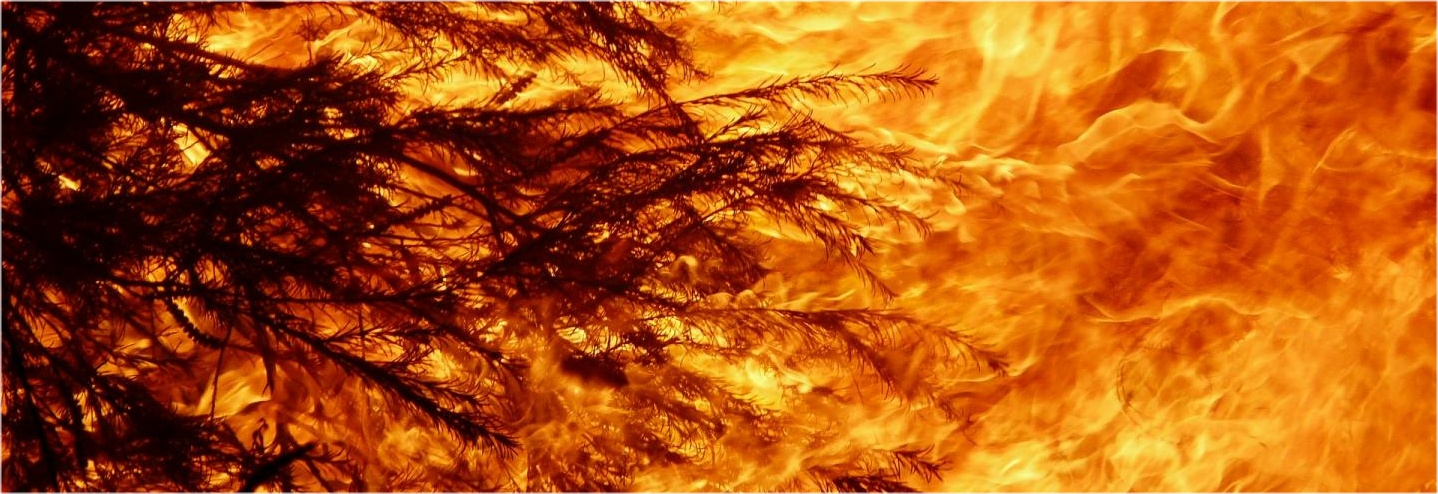Australia is different, claims an environmental paper. Logging made their recent wildfires worse, the authors suggest, due to more plant matter on the ground, more drying, and shorter forest height. But when you read that paper, it is instead that logging does not clear enough. They estimate it can leave up to 450 tons of combustible fuel per hectare on the ground, which is an argument for removal of all flammable products, not a reason to stop logging.
Environmentalists were preparing to call the Australian wildfires earlier this year the worst event of the decade and raise money on it as something they could blame on progress, but coronavirus sent those to the background. Instead of embracing more environmentalism, coronavirus sent the public looking for chemicals, affordable food, and vaccines, and that trend is worrisome trends for groups like Greenpeace.

Bushfire image provided by University of Queensland
The new paper seeks to advocate for actions Australia can control. None of us can do anything about runaway emissions in developing countries, for example - the Paris Accord let countries pick from a smorgasboard of optional ways to pretend they are doing something about global warming, so Pakistan (as just one example) will see their emissions rise nearly 200 percent by 2030 while meeting their Paris Agreement commitment of reduction - because they can arbitrarily claim emissions would've gone up 300 percent. Australia can't do anything about that but activists there can control logging. However, just like Australia is not the problem in global CO2 emissions, logging is not the reason fires happen in Australia. Yet the authors seek to argue it is, a deflection they would protest if companies sought to deflect blame in other areas.
For example, they use a high risk area of Victoria and note that since 1995, a third of the area that had caught on fire had it happen again twice more. To much of the world, even natives, this is is a place where there was always high fire risk and it should be mitigated by having smarter tree removal, removing brush, and removing charcoal in the form of damaged trees.
Their solutions are in defiance of basic physics, like calling for an end to logging forests near places people actually live. The solution is literally the opposite. The authors are all environmentalists except for one biologist, but they could at least ask a physical scientist about real-world mechanisms for how fire spreads. Instead, they cited the most aggressive estimate someone else made for each premise in their paper and then put those into a hopper (for environmentalists; a hopper is a trough that farmers mass dump grain on to get it into a mill) and estimated what what might result.
They further recommend a ban on salvage logging - trees damaged by fires. I grew up using logs for heat so I try to be patient with urban academics who have clearly never started a fire when it mattered but it isn't always easy. What makes it far easier is using charcoal. So why would you want to leave charcoal in forests? Who would think that will prevent fires? Of course they should be removed, yet the authors believe that the benefit of damaged trees in helping other trees grow is worth the risk of another fire.
They also state that logged forests must be replanted. Australia is a big place so perhaps they don't already do that everywhere on the continent but you should not do it next to cities, despite what people whose only axe is a computer mouse claim. In most of the developed world wood is a renewable biological resource so trees are planted after the logging crews move out. I am shocked that any company making money off of trees does not replant them the same way I'd be surprised if farmers didn't manage their fields, but if some companies don't do that (or if it is illegal, the way after a fire California government yells at PG&E for not clearing forests around power lines California government will not let them own) that should be mandated.
The authors clearly have a political agenda - an end to logging - and they are using wildfires to advance their goal, but the recommendations they advocate would make the next series of fires far worse.





Comments